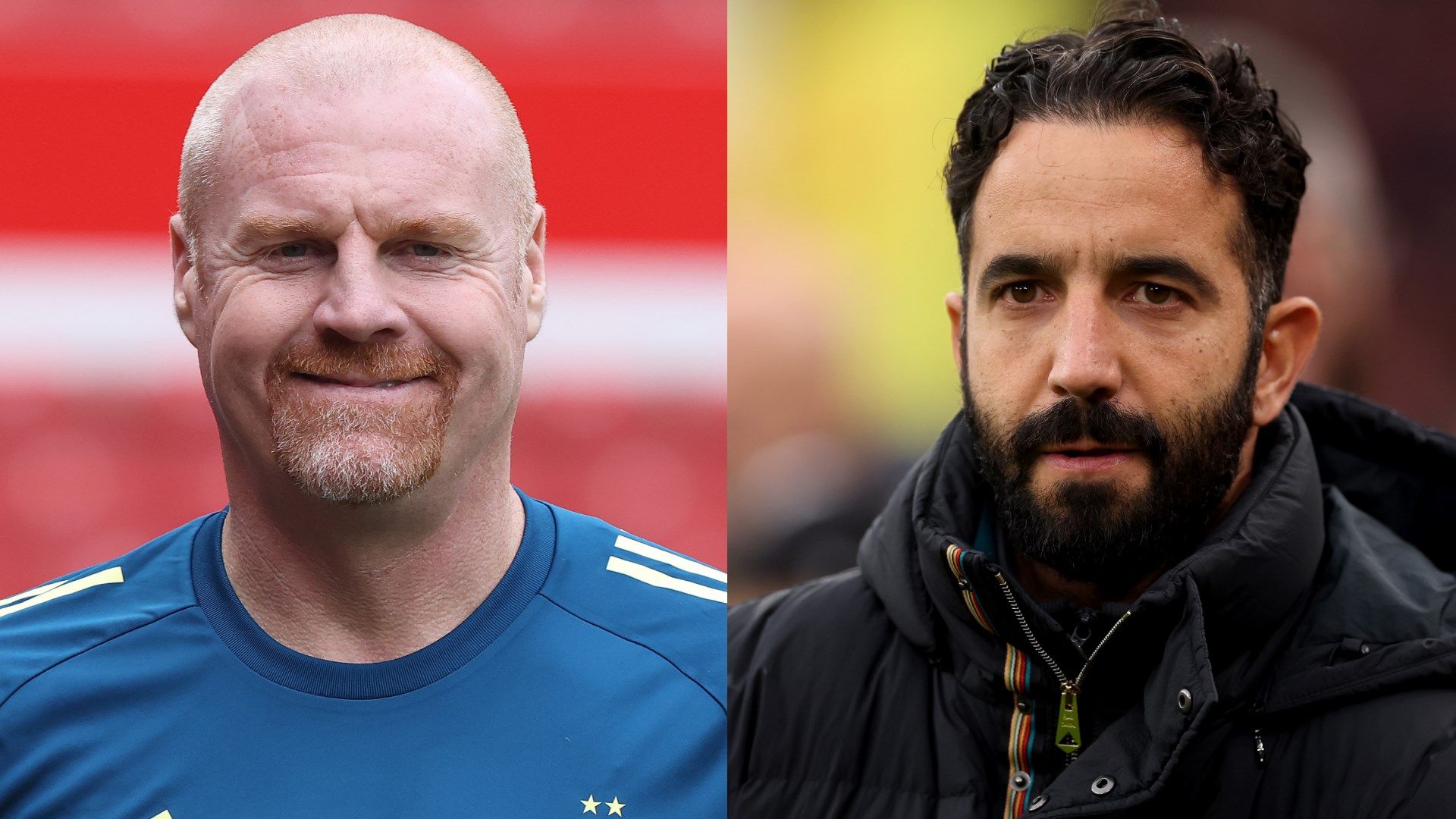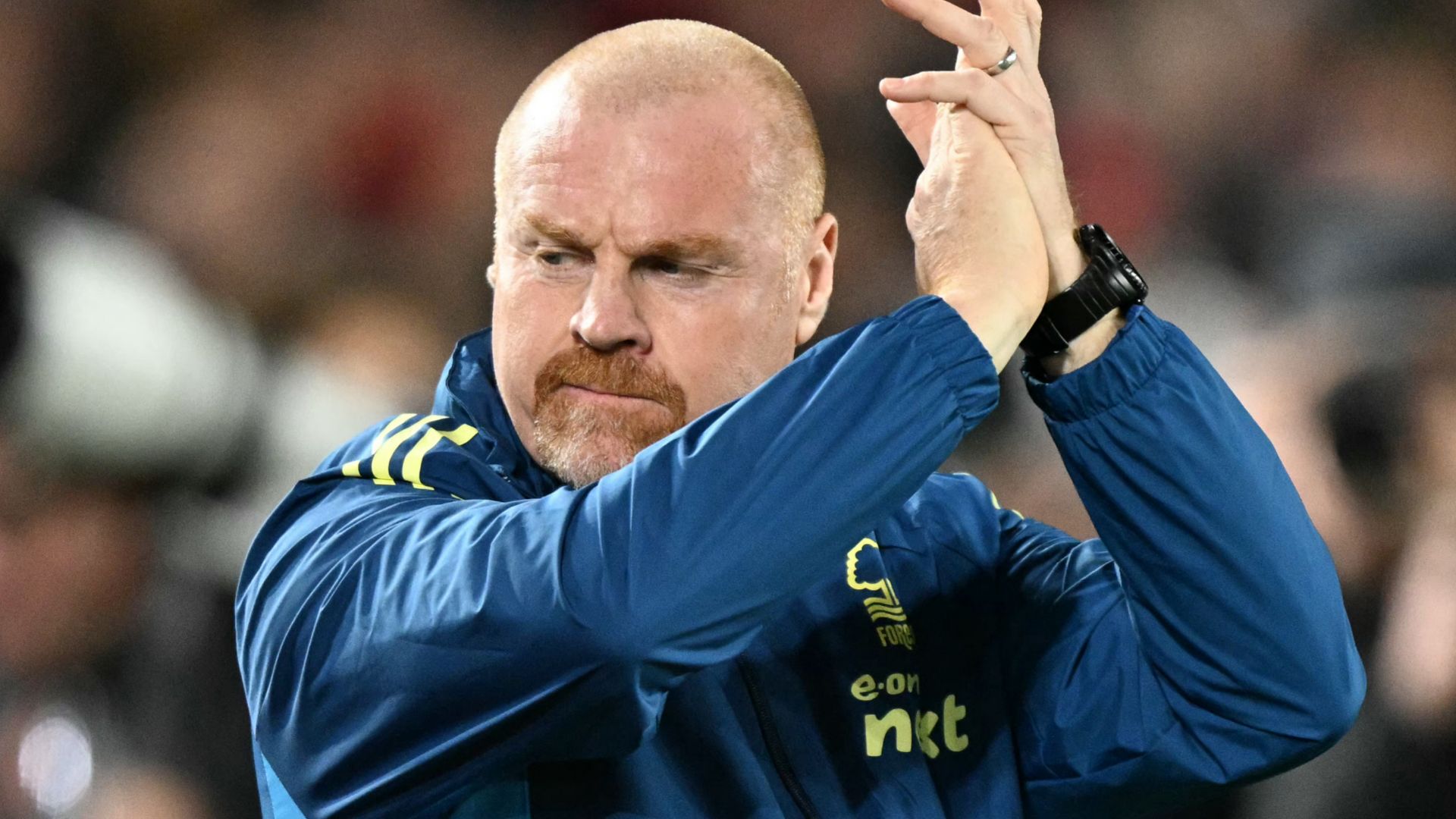Sean Dyche Defends His Comments on Ruben Amorim in the Face of Media Hype
As Sean Dyche and Ruben Amorim prepare for a high-stakes Premier League clash, tensions from past remarks take center stage. Dive into how Dyche‘s earlier words about Amorim‘s tactics at Manchester United have been twisted by media sensationalism, while both managers focus on upcoming performances.



Current Form and Stakes for Both Teams
Under Ruben Amorim‘s guidance, Manchester United is building momentum toward a potential fourth consecutive victory, contrasting sharply with Nottingham Forest‘s struggle to secure their initial league success since the season’s start. For Sean Dyche, recently stepping into his role in the East Midlands, this fixture represents a pivotal early challenge. His tenure has included a solid Europa League triumph against Porto and a disappointing 2-0 loss in the domestic league to Bournemouth, leaving fans eager to witness his strategies unfold at home.
Shifting Focus from Strategy to Past Statements
Instead of discussions around player lineups or game plans, the narrative leading up to the match has centered on remarks Dyche shared months earlier. These originated from his candid discussion on the Stick to Football Podcast in May, where he critiqued the operational structure at United during Amorim‘s early days.
Dyche’s Original Remarks and Their Context
During that podcast, Dyche asserted, “He won’t alter his approach. Amorim needs to deliver victories swiftly.” He went on to speculate, “If I were in charge, implementing my style might yield better outcomes. Opting for a straightforward 4-4-2 with fundamental guidelines could work wonders. Everyone acknowledges the effort, but after a period in the role, results must follow soon.”
Promoting Respect Over Conflict
Approaching the weekend game, Dyche expressed admiration rather than hostility, actively commending Amorim and arguing that his statements were misrepresented for greater appeal.
Clarifying Intent and Showing Solidarity
Dyche emphasized, “I never challenged his character, and I wouldn’t dream of it. Sensationalized content destroys nuance.” He continued, “I also advocated for managers to receive adequate time, suggesting Amorim deserves at least half a season to refine his methods. My esteem for fellow managers is unwavering, and I’m confident his team has conveyed this accurately.”
Recognizing Tactical Adaptability
Dyche further highlighted Amorim‘s ability to adjust strategies, a trait he views as the hallmark of elite leadership. He noted, “I implied that sticking to core elements might have been more effective, and they’ve since modified their playstyle, which is commendable.” Expanding on this, he said, “It’s not about abandoning core principles, but evolving the execution-pushing the ball forward more rapidly, extending passes, and tightening defensive formations. This exemplifies strong leadership and guidance without overhauling the entire vision; it’s about responding to current challenges, and Amorim has demonstrated that adaptability effectively, leading to improved outcomes.”
Amorim’s Composed Rebuttal
If Dyche aimed to provoke debate, Amorim chose not to engage, maintaining his poise and addressing the revived comments with grace, indicating no personal offense.
Humorous and Insightful Response
At his Thursday press briefing, Amorim quipped, “Perhaps there’s truth in switching to a 4-4-2 for more wins, but I’ve always maintained that my style requires time to mature and will ultimately prove superior.” He added, “We can’t be certain yet. Viewing Sean Dyche as both a coach and commentator offers perspective.”
Distinguishing Roles in Football
Amorim reflected, “As a commentator, bold opinions are essential, or it’s not worth tuning in-I’m in agreement there. It’s a distinct role from managing a squad. I recognize Dyche‘s intelligence and his grasp of the sport. He differentiates between analyzing matches and leading a team, and I respect that. Ultimately, I have no retorts; my focus is solely on the next match.”
Anticipation Builds for the Showdown
The spotlight will be on the City Ground this Saturday as Amorim‘s Manchester United side aims to outmaneuver Dyche‘s still-adjusting Nottingham Forest team, who are working to regain their footing. United holds the sixth spot in the Premier League and is pursuing a four-game winning streak, unseen since early 2024. In contrast, Forest lingers in the drop zone with merely five points after nine outings.
The Context of Sean Dyche’s Remarks
Football managers often find themselves in the spotlight, and Sean Dyche’s recent comments about Manchester United’s manager Ruben Amorim have sparked quite a stir. As the Everton boss, Dyche is known for his straightforward style, but this situation highlights how words can be twisted in the world of sports media. Let’s dive into what led to this clarification and why clickbait headlines played a big role.
Who is Sean Dyche?
Sean Dyche, the no-nonsense manager of Everton Football Club, has built a reputation for his tactical discipline and resilience in the Premier League. Often praised for turning teams around on a shoestring budget, Dyche’s career includes stints at Burnley where he achieved impressive results against the odds. In recent Manchester United vs. Everton matches, Dyche has been vocal about the challenges of high-stakes football management, which might have set the stage for his comments on Amorim.
- Key achievements of Sean Dyche:
- Led Burnley to multiple Premier League promotions.
- Known for a defensive style that emphasizes teamwork and physicality.
- Has faced media scrutiny before, making him cautious about public statements.
His remarks on Amorim weren’t meant to criticize but rather to discuss the broader pressures of managing a club like Manchester United, where every decision is amplified.
Who is Ruben Amorim?
Ruben Amorim, Manchester United’s current manager, is a rising star in European football. Formerly at Sporting CP, Amorim brought a fresh, attacking philosophy to Old Trafford, focusing on youth development and dynamic play. His appointment in 2024 was seen as a bold move to revive the club’s glory days, but it’s come with its share of challenges, including inconsistent results and intense media coverage.
- Notable aspects of Ruben Amorim’s tenure:
- Implemented a high-press system that’s influenced by modern tactics.
- Faced early hurdles, such as injuries to key players and adaptation to the Premier League.
- His strategies have sparked debates among fans and pundits about the evolution of Manchester United’s identity.
Dyche’s comments likely stemmed from mutual respect among managers, but the media’s spin turned it into something more sensational.
The Misinterpretation and Clickbait Factor
In the fast-paced world of football news, statements from figures like Sean Dyche can be easily distorted for clicks. Dyche attributed the backlash to clickbait tactics, where headlines prioritize drama over context, leading to widespread misinterpretation of his original intent.
What Exactly Was Said?
During a post-match interview after an Everton vs. Manchester United game, Dyche reportedly commented on Amorim’s approach, suggesting it was “ambitious yet risky” in the current Premier League landscape. However, tabloids and online platforms sensationalized this as a direct jab, with headlines like “Dyche Slams Amorim’s Tactics” dominating social media.
- Reasons for the misinterpretation:
- Lack of full quotes: Media outlets often cherry-pick phrases to fit a narrative, ignoring Dyche’s fuller explanation that praised Amorim’s innovation.
- Contextual oversight: Dyche was discussing general managerial pressures, not targeting Amorim personally, but this nuance was lost in clickbait-driven reporting.
- Social media amplification: Platforms like Twitter and TikTok spread exaggerated versions, turning a professional observation into a heated rivalry story.
This incident underscores how clickbait can harm reputations, especially in SEO-heavy environments where viral content drives traffic.
How Media Played a Role
The role of digital media in football news has grown exponentially, with SEO optimization pushing outlets to use keywords like “Sean Dyche controversy” or “Ruben Amorim criticism” to boost visibility. Dyche pointed out that such practices prioritize engagement metrics over accurate journalism, leading to a cycle of misinformation.
- Common clickbait strategies in sports reporting:
- Exaggerated titles: Using words like “bombshell” or “attack” to draw in readers searching for Manchester United news.
- Rapid publishing: Articles are rushed out without fact-checking, as seen in this case where Dyche’s words were taken out of context.
- Algorithmic influence: Search engines favor content with high engagement, encouraging sensationalism around topics like Premier League managers.
Dyche’s frustration highlights a broader issue in the industry, where fans seeking reliable info on figures like Amorim often encounter biased coverage.
Sean Dyche’s Clarification
Dyche quickly addressed the uproar through an official club statement and social media, emphasizing that his comments were misinterpreted due to clickbait motives. This response not only cleared the air but also sparked discussions on media ethics in football.
Official Statement
In his clarification, Dyche stated, “My remarks were about the challenges we all face as managers, not a personal critique of Ruben Amorim. It’s disappointing how clickbait has twisted this into something it’s not.” This direct address aimed to refocus the narrative on mutual respect among Premier League coaches.
- Key elements of Dyche’s clarification:
- Call for accuracy: He urged media to provide full context in articles about football managers.
- Support for Amorim: Dyche expressed admiration for Amorim’s work, noting it as inspirational for other clubs.
- Future implications: This could lead to more cautious interviews, affecting how SEO keywords like “Manchester United manager” are used in reporting.
Impact on the Football Community
The incident has rippled through the football world, prompting debates on social platforms and among fans. It serves as a reminder of how misinterpretations can affect team dynamics and public perception.
- Broader effects on Premier League discussions:
- Fan reactions: Many supporters defended both managers, using hashtags like #RespectInFootball to counter clickbait narratives.
- Media accountability: Outlets are now facing calls for better practices, potentially improving the quality of content around keywords such as “Sean Dyche remarks.”
- Managerial solidarity: This event might encourage more managers to speak out against sensationalism, fostering a more positive environment in the league.
Lessons from This Incident
While misunderstandings in football are common, this episode with Sean Dyche and Ruben Amorim offers valuable takeaways for readers interested in Premier League drama.
Why Clickbait Matters in Sports SEO
Clickbait not only misleads audiences but also impacts how search engines rank content. Using keywords like “Sean Dyche clarifies” effectively requires balancing engagement with authenticity to maintain trust.
- Tips for spotting reliable football news:
- Look for sources that provide full transcripts of interviews.
- Check for balanced coverage that includes perspectives from all parties involved.
- Avoid articles with overly dramatic titles that exploit trending topics like “Manchester United controversy.”
By understanding these dynamics, fans can navigate the digital landscape more effectively, ensuring they get accurate insights into their favorite teams and managers. This ongoing conversation about media practices continues to shape how we consume sports content.









